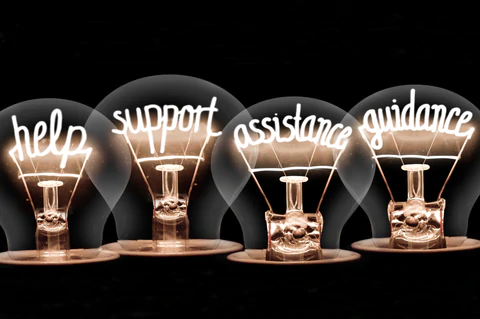Free delivery on orders over £50, only £4.95 under £50
Free delivery on orders over £50, only £4.95 under £50

Please note that all content on this website (including, but not limited to, copy, images, commentary, advice, tips, hints, guides, observations) is provided as an informational resource only. It is not a substitute for correct and accurate diagnosis, or recommendation, or treatment by a medical professional. Please ensure that you obtain proper guidance from your GP, or another medical professional. The information provided on this website does not create any patient-medical expert relationship and must not be used in any way as a substitute for such.
Kidneys are the waste filters of your body. Their job is to filter your blood and get rid of anything you don’t need, by passing it in your urine.
Kidneys also recycle a lot of the things that you do need and don’t want to lose a lot of, like sodium. As well as this, kidneys play a vital role in keeping the balance of water in your body at the right level.
Chronic Kidney Disease (CKD) is a condition where the kidneys are not working at full capacity.
Kidneys tend to be much better at their job than they need to be, so someone who has perfectly healthy kidneys, for example, could probably afford to lose one and would continue as usual without noticing anything had happened. This is because only one of your kidneys, when working well, is more than good enough at doing the job on its own. This is why people can donate one of their kidneys for live transplants.

Photo by Anand Dandekar from Pexels
If you have only mild impairment in your kidney function, you will likely have no symptoms at all. If your kidney function is more severely affected, then there are several symptoms that you might notice, such as:
• feeling tired all the time
• feeling short of breath
• increased swelling
• in severe cases, not passing as much urine as you would normally
• feeling nauseous and
• blood in your urine.
These symptoms are generally quite vague and can be attributed to many other conditions. If you feel that you are experiencing any of these symptoms, you should make an appointment with your GP.
There are lots of medical conditions that can affect your kidneys. Certain drugs and medications can also play a role, as well as genetics. Some of the causes of CKD are as follows:
Frequent swings in blood glucose from high readings to low readings will damage blood vessels and arteries. Your kidneys need a really good blood supply to work well. In diabetes, if the glucose levels fluctuate between high and low readings a lot, the damaged blood vessels can lead to reduced kidney function.
The blood vessels in your kidneys are sensitive to blood pressure. This is because they have a role in keeping your blood pressure normal and can release hormones to help maintain normal blood pressure. If your blood pressure is high all of the time, the arteries in your kidney can become narrowed, or scarred. This leads to decreased blood flow and therefore, a decrease in kidney function.
In heart failure, you can get water leaking out of your blood vessels into areas where it would not usually be. When water sits in these places and causes swelling, such as on and around your hands, or ankles, it is called oedema.
Some people living with oedema find that daily living aids, such as oedema gloves or socks, which provide light compression, can help alleviate oedema symptoms.
Swelling can happen in, or around your kidneys.
You may have had a severe urine infection which spread to your kidneys, or chronic kidney stones. You may have inherited a genetic condition that affects how your kidneys work. There are too many specific conditions to list that can cause kidney disease. If your doctor thinks you have any of these conditions, they will probably do further tests to look for them.
Some drugs have been shown to increase your risk of Chronic Kidney Disease. An example of one of these would be ibuprofen when used long-term.
If you have only a mild decrease in kidney function, Chronic Kidney Disease will likely be diagnosed during routine blood tests. Depending on your individual circumstances, tests beyond this may not be needed. It might be that if there is a sudden change in your kidney function, and your doctor is worried about it, you will probably be sent for specific imaging tests.
A blood test which shows how well your kidneys are working goes by several different names. Your doctor may refer to it as renal function tests, kidney function tests, or a urea and electrolytes test (U&Es). Essentially, these are all different names for the same thing.
This blood test measures several things. Firstly, it measures two key waste products that your body makes, that would usually be filtered out of your blood by your kidneys. These products are urea and creatinine. If these products are high in your blood, then it could mean that your kidneys aren’t working as well as they would normally be. The products are high because they aren’t being filtered out of your blood and removed in your urine in the levels that they would normally.
Having slightly raised urea and creatinine levels is not something to worry about. It will not cause long term issues, and your body learns to cope with the higher levels.
Other things that are looked for in a kidney function test are your sodium and potassium levels. These are both electrolytes, and your body must have the right amount to work correctly. If your sodium becomes too high, or low, it can cause confusion and seizures, and if your potassium becomes too high, or low, it can cause problems with your heart.
Your kidneys play a vital role in keeping these levels within a normal range by getting rid of what you don’t need in your urine and recycling them back into the blood once it is filtered. If your kidneys aren’t working as they should, then this balance could be lost. However, like with urea and creatinine levels, this typically only becomes an issue if your kidneys are severely impaired.
Depending on local policies, there may be another value reported on a kidney function test – it is called your estimated glomerular filtration rate, or eGFR. This isn’t a test done in a lab, but is a calculation that can be made based on the other levels in your kidney function test and your age and gender. It is important because it is what is used to define how severe your kidney disease is, and is a measure that can be compared over time to see if your kidney function is getting worse. If a laboratory has calculated the eGFR, they will probably report it up to a value of 90, and anything above this, they will just say it is greater than 90.
Your eGFR naturally declines with age. Until you are 60, it would be normal for it to be greater than 90. Between the ages of 60 and 70, above 85 is normal, and above the age of 70, anything above 75 is normal.
Your doctor will probably take a urine sample which will be sent to a laboratory to look for a protein called albumin. The level of this protein in your urine, along with some other substances which might be present, can indicate how likely your CKD is to get worse. Urine sampling can also be done to test for, or give an indication, as to the underlying cause of your kidney disease.
Which other tests you undergo will depend on how your kidney disease was diagnosed, and what your doctor thinks might be the cause. As we get older, it isn’t unusual for our kidney function to decline. Most people never get any symptoms from this and don’t require any further tests.
If your kidney function is worse than what would be expected for your age, you will probably be tested for several different conditions. You are likely to get different scans of the kidneys to see how well they are working and if there is anything obvious that can be seen to be causing the issue. This could be an ultrasound, an MRI, or a CT scan.
If these scans show anything untoward, or if it is suspected that your kidneys may have some damage, you may be sent for a kidney biopsy. This is where a small piece of your kidney is removed with a needle and sent to a laboratory for examination under a microscope.
If you have been told that you have Chronic Kidney Disease and want more information about these tests, then you should speak to your doctor. In the vast majority of cases, these tests aren’t needed, and all that is necessary are simple blood tests and a urine sample. If your disease is more complex, the first step would likely be a referral to a specialist kidney doctor (nephrologist).

Photo by Brand & Palms from Pexels
Chronic kidney disease is divided into stages depending on severity. Your eGFR is used as the criteria for each stage.

Stages 1 and 2 are classed as mild, stage 3 as moderate, and stage 4 as severe. Stage 5 is where your kidneys are said to be failing.
If you have mild CKD, or are in stage 1 or 2, with a normal urine sample, then you have a low risk of your kidney disease progressing to end stage renal disease, or kidney failure. If in your urine sample you have high amounts of a protein called albumin, this increases the risk of your CKD getting worse. Those with higher stages of kidney disease are also at increased risk of it progressing. If you are concerned about your risk of the disease progressing, talk to your GP, or nephrologist.
There are no treatments for CKD. How you are managed will depend on what stage you are at, and what the underlying cause is. If you have mild CKD and no symptoms, then no treatment will be necessary. Your doctor might advise you to make some healthy lifestyle changes, such as stopping smoking if you smoke and losing weight. Pedal exercisers and exercise bands are particularly beneficial to help with gentle exercise to assist with weight loss and overall health. If you have high blood pressure, or cholesterol, you might be started on medications for this.
Suffering from kidney disease can increase your risk of certain other conditions. You may be started on treatments to reduce your risk of getting these conditions, or to treat them if you develop them.

Photo by JZhuk on iStock
It is quite common for people with more severe chronic kidney disease to develop anaemia. This is where you have a lack of red blood cells and this can lead to tiredness and a shortness of breath. If you develop this, you may be treated with regular hormone injections called erythropoietin. This is a hormone that encourages your body to make more red blood cells. You may also be started on iron supplements.
Another complication of kidney disease is the development of weak bones, or osteoporosis. Your kidneys are responsible for filtering out a substance called phosphate, and if they aren’t doing this very well, then this can lead to a build-up in your blood. If your phosphate levels are too high, this can cause your bones to lose calcium, which makes them weaker. If you are at risk of this happening, you might be started on a medication to stop it. Calcium carbonate is a commonly used medication that binds the phosphate in your blood and prevents the loss of calcium from your bones. You are also likely to be started on a vitamin D supplement.
If your kidney function becomes so weak that waste products begin to build up in your blood, you may need dialysis. There are different types of dialysis, but essentially, they all have the same principle; artificial removal of waste products that your kidneys would usually remove.
There are two main types of dialysis;
Haemodialysis is where your blood is taken directly from a blood vessel in your arm and run through a filter in a machine. The blood is then put back into the arm through a different tube.
Peritoneal dialysis is a type of dialysis where blood isn’t removed from your body and put through a filter. Instead, a tube is inserted into your abdomen. Inside your belly is your peritoneum; this is a thin membrane that sits over the organs over your gut. Water is pumped through the tube next to the peritoneum, and this acts as a filter. Waste products naturally make their way into the fluid, and then the liquid is removed and replaced.
Both types of dialysis can significantly impact on people’s lives. They need to be done frequently, sometimes daily, and can take a few hours at a time, depending on what type and how often you have it.
If you are being started on dialysis for CKD, you will likely need to be on it permanently. As your kidney function will not improve, you will need dialysis to remove waste products from your blood. If you were to stop getting dialysis, these waste products would build-up, and this would eventually be fatal.
In this scenario, the only way to stop needing dialysis would be a kidney transplant. Transplant decisions are made on an individual basis depending on several factors, the most important of which is how likely surgery is to be successful. If you are severely unwell and unlikely to survive surgery, then you will be on dialysis for the rest of your life.
The most common side effect of dialysis is feeling tired all the time. Others depend on what type you are getting.
• Low blood pressure
• Light headedness
• Increased risk of infections
• Cramps in your muscles
• Itchiness
• Abdominal pain
• Hernia
• Infections in your abdomen
• Weight gain
Most people with CKD will never get to the point of needing a kidney transplant. If your kidney function has deteriorated to the point where you need dialysis, then this is when a transplant would be considered. Regardless of your age, you would be considered for a transplant if:
• you are well enough to survive the surgery
• you agree to the aftercare required after a transplant
• the transplant itself is likely to work.
If you have a transplant, you will need to take strong medications that suppress your immune system. These medications make it much more likely that you will develop infections, but they also stop your body from attacking the transplanted kidney. You will be on these medications for the rest of your life. Whilst managing multiple different medications can be challenging, living aids such as pill organisers can help with staying organised.
For further information about kidney transplants, you should speak to your doctor. You can also visit the NHS website page on kidney transplants.

Photo by EtiAmmos on iStock
Kidney care UK is a charity dedicated to helping those with kidney disease. They operate a helpline which you can call for support and advice. They also run a counselling and support service. They have an online community that you can access to meet other people who are suffering from CKD. They offer grants for holidays and respite breaks and can signpost you towards any financial support which may be available to you.

Photo by Pixabay from Pexels
Medical terms are often baffling and difficult to fully understand. To help, we have listed some frequently used terms below.
Anaemia – a condition where you have fewer red blood cells than normal. This can lead to a shortness of breath and tiredness
Creatinine – a waste product from the normal cycle of muscle break down in your body. It is normally cleared from the blood by your kidneys
CT (Computed Tomography) – a scan which uses radiation to take detailed pictures of the inside of your body
Dialysis – a treatment used in severe kidney disease, where your kidneys are no longer performing the job that they do in order to keep you alive. This is where waste products are artificially filtered out of your blood
eGFR (estimated Glomerular Filtration Rate) – used as the main measure for how well your kidneys are working. This figure is calculated based on your blood tests and some other key demographics
Electrolytes – these are minerals in your body that are electrically charged. They perform a number of functions, including keeping the balance of water right
Hernia – where an organ pushes out of the space it is supposed to be in, for example, when the gut pouches outside of the abdominal muscles, this can produce a visible hernia
Hormones – these are chemicals which are produced by one part of your body and affect another part. For example, your kidneys produce hormones which act on your blood vessels to increase blood pressure
MRI (Magnetic Resonance Imaging) – a san which uses powerful magnets to take pictures of the inside of your body. This scan does not produce damaging radiation and is very good at showing parts of the body that have a lot of water
Nephrologist – a doctor who specialises in diseases affecting the kidneys
Oedema – when water accumulates underneath the skin. Typically this is in the ankles and feet, causing swelling
Osteoporosis – a condition where the bones in the body become weaker than you would expect for a person’s age
Transplant – in the context of kidney disease, this is where a healthy kidney from another person is surgically placed inside someone who has kidney failure. This 'donor kidney' then works as normal, filtering the recipient’s blood and, if successful, means they do not need dialysis
Ultrasound – a scan which is performed by an ultrasound technician. It is commonly used in pregnant women to visualise the baby. It uses ultrasound waves through a probe placed onto a patient’s body with a lubricant jelly to show pictures of internal organs